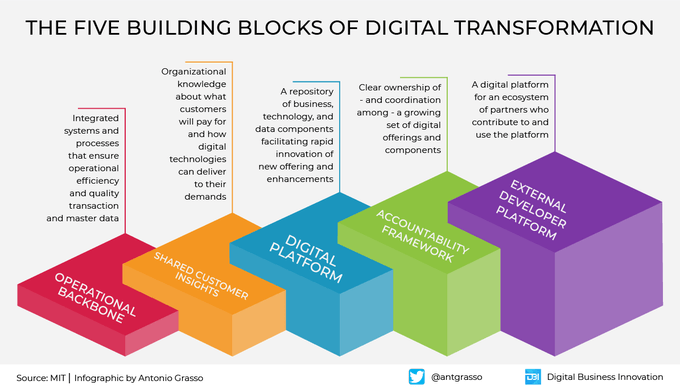
Navigating Digital Transformation: Strategic Approaches for Success
Digital transformation has become a vital initiative for businesses seeking to thrive in today’s fast-paced, technology-driven landscape. Embracing innovative technologies and adapting to evolving consumer behaviors are critical components of a successful digital transformation strategy. Let’s explore key approaches that organizations can implement to navigate this transformative journey effectively.
Comprehensive Digital Roadmap:
Crafting a comprehensive digital roadmap is the foundational step in any successful transformation. This involves a thorough assessment of current digital capabilities, identification of areas for improvement, and setting clear, achievable objectives. A well-defined roadmap provides a strategic guide for the entire organization, ensuring a cohesive and purposeful digital transformation journey.
Customer-Centric Focus:
Digital transformation should always revolve around meeting customer needs and expectations. Understanding the customer journey, leveraging data analytics, and adopting customer feedback are essential elements. By aligning digital initiatives with customer-centric goals, businesses can enhance user experiences, build loyalty, and stay ahead of evolving market trends.
Agile and Flexible Frameworks:
In the dynamic digital landscape, agility is key. Implementing agile methodologies allows organizations to adapt swiftly to changing market conditions and emerging technologies. Flexible frameworks enable iterative development, quick adjustments, and a more responsive approach to evolving business requirements.
Data-Driven Decision-Making:
Harnessing the power of data is central to digital transformation. Implementing robust data analytics tools provides valuable insights into customer behavior, market trends, and operational efficiency. Data-driven decision-making ensures that organizations can make informed choices, optimize processes, and stay competitive in the digital era.
Innovative Technology Adoption:
Digital transformation often involves the adoption of cutting-edge technologies. Cloud computing, artificial intelligence, machine learning, and the Internet of Things (IoT) are just a few examples. Businesses need to identify technologies that align with their objectives and implement them strategically to enhance efficiency, productivity, and overall business performance.
Cultural Shift and Change Management:
A successful digital transformation is not just about technology—it’s also about people. Fostering a culture of innovation, collaboration, and adaptability is crucial. Effective change management ensures that employees at all levels are on board with the digital transformation journey, minimizing resistance and maximizing engagement.
Strategic Talent Development:
Investing in talent development is paramount for a successful digital transformation. Employees need the right skills to leverage new technologies and navigate the digital landscape. Continuous training programs, upskilling initiatives, and recruitment strategies aligned with digital needs contribute to building a workforce that can drive and sustain transformation.
Cybersecurity Integration:
As organizations digitize their operations, the importance of cybersecurity cannot be overstated. Integrating robust cybersecurity measures ensures the protection of sensitive data, builds trust with customers, and safeguards against potential cyber threats. Cybersecurity should be an integral part of any digital transformation strategy from the outset.
Collaboration and Partnerships:
In the digital ecosystem, collaboration is a powerful catalyst for success. Partnering with technology providers, industry peers, and startups can bring fresh perspectives, innovative solutions, and access to emerging technologies. Collaborative efforts amplify the impact of digital transformation initiatives and contribute to a more interconnected and resilient business environment.
Continuous Evaluation and Evolution:
Digital transformation is an ongoing process that requires continuous evaluation and evolution. Regularly assessing the effectiveness of implemented strategies, measuring key performance indicators, and staying attuned to industry trends allow organizations to adapt proactively. A mindset of continuous improvement ensures that digital transformation remains a dynamic and responsive endeavor.
To learn more about Digital transformation strategies, visit businessinc.my.id. Explore resources and insights to guide your organization’s digital transformation journey, ensuring sustainable growth and success in the digital age.

